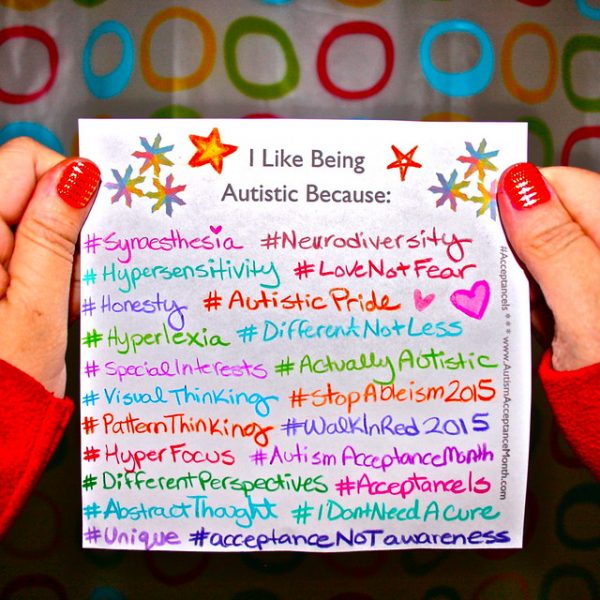
In 2007, the United Nations General Assembly designated April 2nd as World Autism Awareness Day. This community-wide event promotes the recognition and raises awareness about Autism Spectrum Disorder (ASD). The celebration brings individuals with autism and grassroots organizations together to connect and to promote appreciation for people with autism. Despite increasing awareness, the causes of ASD remain a puzzle. While scientific approaches consider it to be a developmental disorder associated with genetic or environmental factors, recent studies in social science illustrate how cultures themselves vary in their perception of both autism and other neurological differences.
The prevalence of autism has grown in past decades in North America. Explanations of this trend point out to an increase in the prevalence of ASD, a broadening spectrum of autism diagnoses, and declining stigma that promotes recognition and acceptance of the condition. Sociologists have also suggested that this may be because parents, psychologists, and therapists have created alliances, using their expertise to develop a new system of institutions for approaching autism.
- Gil Eyal. 2013. “For a Sociology of Expertise: The Social Origins of the Autism Epidemic.” American Journal of Sociology 118(4): 863-907.
- Annemarie Jutel. 2009. “Sociology of Diagnosis: a Preliminary Review.” Sociology of Health & Illness 31(2): 278-299.
Regarding the causes of ASD per se, early scientific theories indicated that the condition was associated with genetic alterations, but social science studies have emphasized the role of environmental factors. Further, cultural factors across the world can also shape how people understand autism in the first place.
- Douglas W. Maynard and Jason Turowetz. 2019. “Doing Abstraction: Autism, Diagnosis, and Social Theory.” Sociological Theory 37(1): 89-116.
- Marissa D. King, and Peter S. Bearman. 2011. “Socioeconomic Status and the Increased Prevalence of Autism in California.” American Sociological Review 76(2): 320-346.
Both the description and diagnosis of the ASD depend on historical factors and vary across nations. In Korea, children with autism and their families experience profound stigma, especially the mother — who is considered to be responsible for her child’s condition. Since in Korea parents gain social respect based on the behavior of their children, having a child with autism constitutes a signal of defective parenting. On the other hand, in Nicaragua, there is an emergent culture around autism that encourages teachers and communities to create a supportive environment. However, both cultures still see autistic children as suffering with a disability. Both stances contrast with new ideas about neurodiversity that strive to create a new place for autism in larger socio-cultural contexts.
- Hyun Uk Kim. 2012. “Autism Across cultures: Rethinking Autism.” Disability & Society 27(4): 535-545.
- Jennifer C. Sarrett. 2015. “’Maybe at Birth There was an Injury’: Drivers and Implications of Caretaker Explanatory Models of Autistic Characteristics in Kerala, India.” Culture, Medicine, and Psychiatry 39(1): 62-74.
Somali immigrants call autism the “Western disease” because there is no word for autism in the Somali language and because many believe it does not exist in Somalia. Somali parents accuse the Western diet and medical environment in North America for the condition of their children. Their testimonies have not only opened possibilities to explore new scientific hypotheses regarding the environmental causes of autism, but also to reveal the power dynamics and struggles involved in validating different perspectives and narratives about the condition.
- Claire Laurier Decoteau. 2017. “The “Western Disease”: Autism and Somali Parents’ Embodied Health Movements.” Social Science & Medicine 177: 169-176.
Contemporary educational programs in the United States are now more aware of the importance of highlighting the strengths rather than the deficits of students with autism. They also recognize that accommodation and acceptance of autism is as important as finding its genetic and neurological causes.

Comments